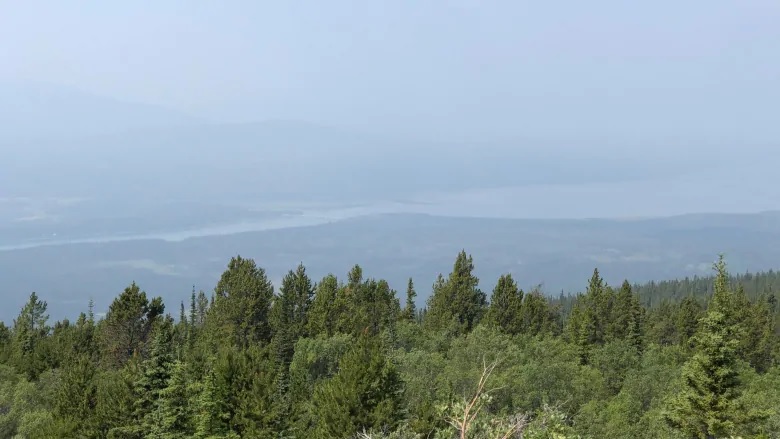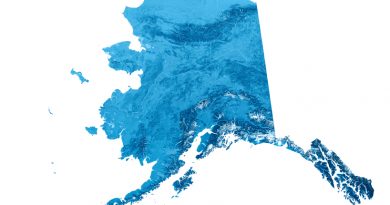Wildfires in Alaska and Yukon producing smoky conditions

Yukon’s chief medical officer of health issued an air quality advisory Monday as much of the territory was blanketed by smoke from wildfires.
The smoke is coming from fires in Alaska and central Yukon.
Dr. Andy Delli Pizzi, medical officer of health with the Yukon government, says people at risk of respiratory problems should avoid strenuous activity outside.
“[Smoke is a problem] especially for the very young or for elders or for those with chronic lung or heart disease,” he said. “And we also include pregnant women in that category of potentially high risk individual.”
Delli Pizzi says those at risk should find a place with clear air if they start to experience coughing, eye or throat irritation, or shortness of breath.
He says people who work outside should go inside if they are having difficulty breathing or other symptoms.
Seven new wildfires started in Yukon over the weekend, including five in the Klondike region. The largest, at Pigue Creek, is now burning more than 43,000 hectares.
In Alaska, state authorities have issued regional air quality advisories because of wildfires burning on the Kenai Peninsula and in the state’s eastern interior.
Written by Chris Windeyer, from a report by Dave Croft
Related stories from around the North:
Canada: Rail link downed by Alberta wildfire won’t raise fuel prices in Northwest Territories, minister says, CBC News
Sweden: Study on Swedish wildfires shows how to make forests rise from the ashes, Radio Sweden
United States: Wildfire in Anchorage, Alaska forces rapid response, Alaska Public Media



